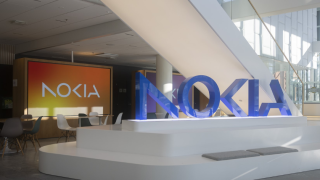In August of this year, Virgin Media O2 (VMO2) launched a commercial plug-and-play 5G standalone (SA) private network that targets businesses in both urban and rural areas across the UK.
The network is portable and allows companies to tap into the benefits offered by private networks without complex installation requirements.
The network is “only slightly larger than a carry-on airline bag” and can be used by any business from tech startups to large global companies.
The notion of private networks has been around for a while, beginning with the use of 4G LTE Wifi technology, but the technology’s potential remained limited. This changed when regulators opened up the spectrum for private 5G.
And given the global private cellular network market will likely expand to US$6.32 billion by 2026 from $1.83 billion in 2021, according to research firm Frost and Sullivan – VMO2 is tapping into a fruitful market.
Speaking to Capacity, Sandeep Raithatha, head of strategy, innovation and 5G at VMO2 Business, says that the security benefits of the network are clear given it offers data residency – a key requirement for many organisations.
Some customers want to ensure that their data is kept locally if it's sensitive, key for their manufacturing process or critical for the infrastructure they are providing.
“The infrastructure and equipment reside on the customer’s site and that means they are given more control,” Raithatha says.
Raithatha adds that the portable solution is ideal because it is all-encompassing in a case created with a level of security, containing features to make it as secure as it is unique.
“To access the private network, you need a physical SIM card, but this is allocated within the network itself,” he says.
That offers one level of security, but another level is done through a partnership with Nokia and the Finnish brand’s Nokia Digital Automation Cloud (NDAC) architecture which ensures that the user’s data always stays onsite.
It also integrates Nokia’s connection-focused MX Industrial Edge (MXIE) platform which includes compute, storage, network and application management functions that run on it to provide central management.
MXIE acts as an on-premises edge platform for the management of operational technology, including private networks.
The VMO2 SA private network platform is the first to integrate this in the UK.
The product is being used by Telefónica, VMO2’s parent company through its Wayra innovation arm.
VMO2 has worked with Nokia for various deployments including one with British Sugar. In January 2022, VMO2 and British Sugar switched on the first multi-site private mobile network of its kind in the UK.
That particular partnership leveraged secure 4G to create four connected ‘factories of the future’ with smart tech including IoT robotics, automation as well as health and safety drones.
Raithatha says that Nokia has a procedure in terms of managing and securing the private network, which is described as a hardening process.
“They ensure that end-to-end, the network and the infrastructure that they’re providing is fully secure – and that can be from ensuring that physical layer of security with SIMs to ensuring that all of the software that is running on this hardware is always up to date.”
“There is always a mechanism to ensure that software is updated regularly and that helps manage the zero-day threat attacks that you might get because they can push software updates more frequently,” adds Raithatha.
This, he says, gives confidence to VMO2 customers that the solution will work. But in cases where customers want enhanced security, Raithatha believes that VMO2 can ease concerns by looking at potential partners on a case-by-case basis and then acting depending on the needs of the customer.
Addressing the threats
With the popularity of private networks only set to increase, Raithatha expects to see deployments across national infrastructure, whether that’s airports, ports, or utility plants.
With that said, the expectation is that this will raise the visibility of bad actors, increasing the level of threat.
“But there will be multiple ways to address that,” he says.
One way to do that is through the 3rd Generation Partnership Project (3GPP) which refers to an umbrella term for a number of security standards that develop protocols for telecoms.
While these standards are not completely impenetrable, a study from Trend Micro where it interviewed 150 enterprises with 5000+ employees found that 72% deemed this approach as “sufficient”.
Raithatha thinks that soon there will be “constant assessment” of how to secure environments where private networks operate.
“We’re fortunate that the private networks – not the plug and play but the more dedicated, permanent solutions that will be in the ground for multiple years normally sit within the IT environment that is already there,” says Raithatha.
“So, there will be a whole range of firewalls and capability and then there is going to be conversation regarding which endpoints the customer would like to connect.”
Ensuring that VMO2 has the right partners that can provide enhanced security to ease concerns will be key, Raithatha adds, and then regular monitoring and testing will be critical too.
Physical security
It isn’t just online security where private networks can aid users. In an eBook about private networks, VMO2 says that a 5G private network offers ultra-low latency to automatically stop a machine in its tracks instantly.
For example, if an autonomous forklift and a human do cross paths, there is no danger of the two getting close enough thanks to real-time sensors.
This instant relay of information is also the basis for strategic site security. A 5G private network is not only safer from external cyber-attacks, the operator says, but also secure within itself as access to buildings or data is monitored in real-time.
With access controls baked into security operations, there is “no chance” of anyone gaining unauthorised access without being detected immediately.






